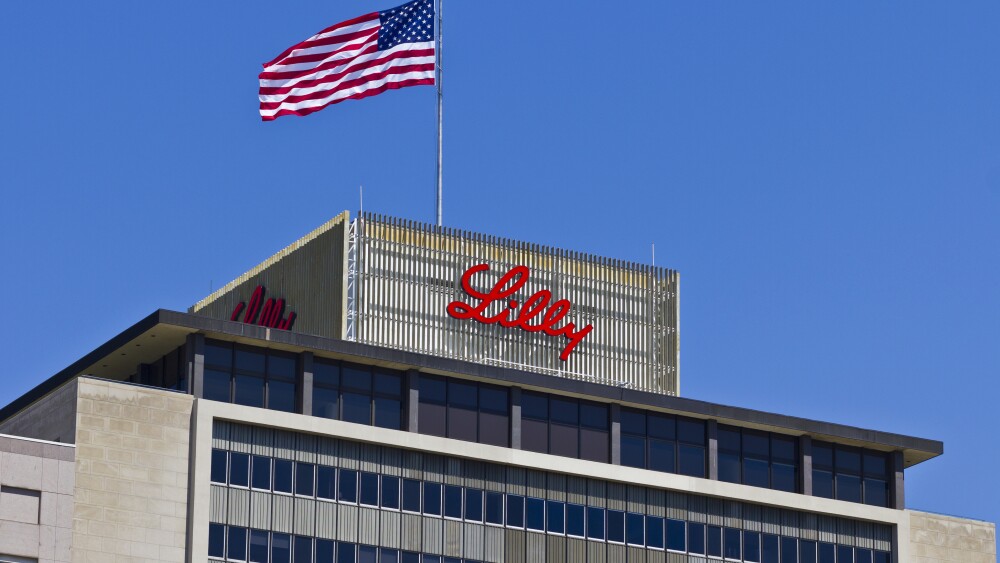SANTA CLARA, Calif., March 14 /PRNewswire-FirstCall/ -- XenoPort, Inc. announced today that it has initiated its first Phase 3 clinical trial of XP13512 as a treatment for restless legs syndrome, or RLS. The commencement of this Phase 3 clinical trial triggers a milestone payment of $10 million from Astellas Pharma Inc., XenoPort's partner for developing and commercializing XP13512 in Japan and five other Asian countries.
Ronald W. Barrett, Ph.D., XenoPort's chief executive officer, stated, "The commencement of our first Phase 3 clinical trial is an important milestone for XenoPort. Since obtaining the positive results of our Phase 2 RLS trials last year, we have scaled-up the manufacturing of XP13512 tablets, recruited clinical sites and advanced our discussions with the FDA. The initiation of this Phase 3 clinical trial represents the successful culmination of these efforts. We look forward to the results from our Phase 3 clinical program and the possibility of providing a new treatment alternative for patients with RLS."
XP13512 Phase 3 Program in RLS
XenoPort's Phase 3 clinical program is intended to provide safety and efficacy data to support the filing and approval of a New Drug Application for XP13512 as a treatment for RLS. The initial Phase 3 trial (Study XP052) is a randomized, double-blind, placebo-controlled trial that is designed to evaluate the safety and efficacy of 1200 mg of XP13512 administered once a day at approximately 5:00 PM for 12 weeks. This trial is anticipated to enroll approximately 200 patients and is being conducted at multiple U.S. sites. Top-line results from Study XP052 are expected in the first half of 2007.
A second multi-center, randomized, double-blind, placebo-controlled trial (Study XP053) is intended to evaluate the safety and efficacy of 600 mg and 1200 mg of XP13512 administered once a day at approximately 5:00 PM for 12 weeks. The inclusion of a 600 mg dosing group in this trial will enable an evaluation of the effectiveness of this dose after 12 weeks of treatment and is expected to provide useful information for studying the pharmacokinetic/pharmacodynamic relationship for XP13512 in RLS. A dose of 600 mg of XP13512 was not effective after two weeks of testing in RLS patients in XenoPort's prior Phase 2b clinical trial.
The co-primary outcome measures for Studies XP052 and XP053 are defined to be the change from baseline in the International Restless Legs Syndrome rating scale and the Clinical Global Impression of Improvement at the end of treatment. Secondary endpoints include onset of efficacy and subjective sleep, pain, mood and quality of life assessments.
A third clinical trial (Study XP060) is intended to evaluate the long-term efficacy of XP13512 using a placebo-controlled, "randomized withdrawal" design to evaluate relapse of RLS symptoms in XP13512-treated or placebo-treated patients who had previously achieved clinical improvement while taking 1200 mg of XP13512 for 24 weeks.
XenoPort also plans to conduct an open-label safety trial of XP13512 in RLS patients with a duration of treatment extending up to 12 months. The results of this trial, combined with those from other XP13512 clinical trials in RLS patients, are intended to meet the International Committee for Harmonization, or ICH, guidelines for safety assessment. Studies XP053 and XP060 and the open-label safety trial are all expected to commence later this year.
About XP13512
XP13512 is a Transported Prodrug of gabapentin, a drug that has been sold by Pfizer Inc as Neurontin since 1993 and is currently sold as a generic drug by a number of companies. XP13512 utilizes high-capacity transport mechanisms to be well absorbed in the small and large intestines and is designed to then rapidly convert to gabapentin upon absorption from the gastrointestinal tract. Besides gabapentin, the metabolic breakdown products of XP13512 are molecules that have undergone extensive safety testing and are found naturally in mammals and in food. Phase 1 clinical trials in healthy volunteers have demonstrated that, in contrast to Neurontin, oral administration of XP13512 produces dose-proportional blood levels of gabapentin across a broad range of doses. Additional Phase 1 clinical trials with a sustained-release formulation of XP13512 have demonstrated that, compared to equivalent doses of Neurontin, XP13512 produced higher levels of gabapentin in the blood for a longer period of time. Two different Phase 2 clinical trials have demonstrated that treatment with XP13512 was associated with a highly statistically significant improvement in RLS symptoms. In addition to RLS, XP13512 has been shown in a Phase 2a clinical trial to be effective for the management of post-herpetic neuralgia, a form of neuropathic pain. XP13512 was well tolerated in all prior clinical trials.
About Restless Legs Syndrome, or RLS
Restless legs syndrome is a common, under-diagnosed neurological disorder that frequently manifests itself as a sleep disorder. Patients who suffer from RLS experience an irresistible urge to move their legs. This urge is usually accompanied by unpleasant sensations of burning, creeping, tugging or tingling inside the patients' legs, ranging in severity from uncomfortable to painful. These RLS-related symptoms typically begin or worsen during periods of rest or inactivity, particularly when lying down or sitting, and may be temporarily relieved by movement such as walking or massaging the legs. Symptoms often worsen at night, and disturbed sleep is a common result of RLS. Left untreated, RLS may cause exhaustion, daytime fatigue, inability to concentrate and impaired memory. Although the exact prevalence rate of RLS is uncertain, a recent study has indicated that approximately 10% of patients visiting primary care physicians in five industrialized Western countries experience RLS symptoms at least weekly, with approximately 2% of patients visiting primary care physicians having symptoms severe enough to disrupt their quality of life.
About XenoPort
XenoPort, Inc. is a biopharmaceutical company focused on developing a portfolio of internally discovered product candidates that utilize the body's natural nutrient transport mechanisms to improve the therapeutic benefits of existing drugs. XenoPort's most advanced product candidate, XP13512, has commenced a Phase 3 clinical program for the treatment of restless legs syndrome, or RLS, and has successfully completed a Phase 2a clinical trial for the management of post-herpetic neuralgia. XenoPort has also completed two Phase 1 clinical trials of XP19986, a Transported Prodrug of R-baclofen. These trials demonstrated that a prototype formulation of XP19986 was suitable for twice-a-day dosing and was well tolerated with few adverse events at the doses expected to be used in future clinical trials. XenoPort has commenced a Phase 2a clinical trial of XP19986 in gastroesophageal reflux disease, or GERD, patients.
To learn more about XenoPort, please visit the web site at www.XenoPort.com.
Forward-Looking Statements
This press release contains "forward-looking" statements, including, without limitation, all statements related to our future clinical development programs for XP13512 and XP19986 and the timing thereof; the therapeutic and commercial potential of XP13512 and XP19986; future clinical development plans; and our future clinical trials. Any statements contained in this press release that are not statements of historical fact may be deemed to be forward-looking statements. Words such as "believes," "anticipates," "plans," "expects," "will," "intends," "potential," "possible" and similar expressions are intended to identify forward-looking statements. These forward-looking statements are based upon XenoPort's current expectations. Forward-looking statements involve risks and uncertainties. XenoPort's actual results and the timing of events could differ materially from those anticipated in such forward-looking statements as a result of these risks and uncertainties, which include, without limitation, the ability of the company to successfully conduct clinical trials for XP13512 and XP19986; the uncertainty of the FDA approval process and other regulatory requirements; and the therapeutic and commercial value of the company's compounds. These and other risk factors are discussed under the heading "Risk Factors" in our Quarterly Report on Form 10- Q for the quarter ended September 30, 2005, filed with the Securities and Exchange Commission on November 3, 2005. XenoPort expressly disclaims any obligation or undertaking to release publicly any updates or revisions to any forward-looking statements contained herein to reflect any change in the company's expectations with regard thereto or any change in events, conditions or circumstances on which any such statements are based.
NOTE: XenoPort and Transported Prodrug are trademarks of XenoPort, Inc.
XenoPort, Inc.CONTACT: Jackie Cossmon of XenoPort, +1-408-616-7220, or ir@XenoPort.com
Web site: http://www.xenoport.com//




